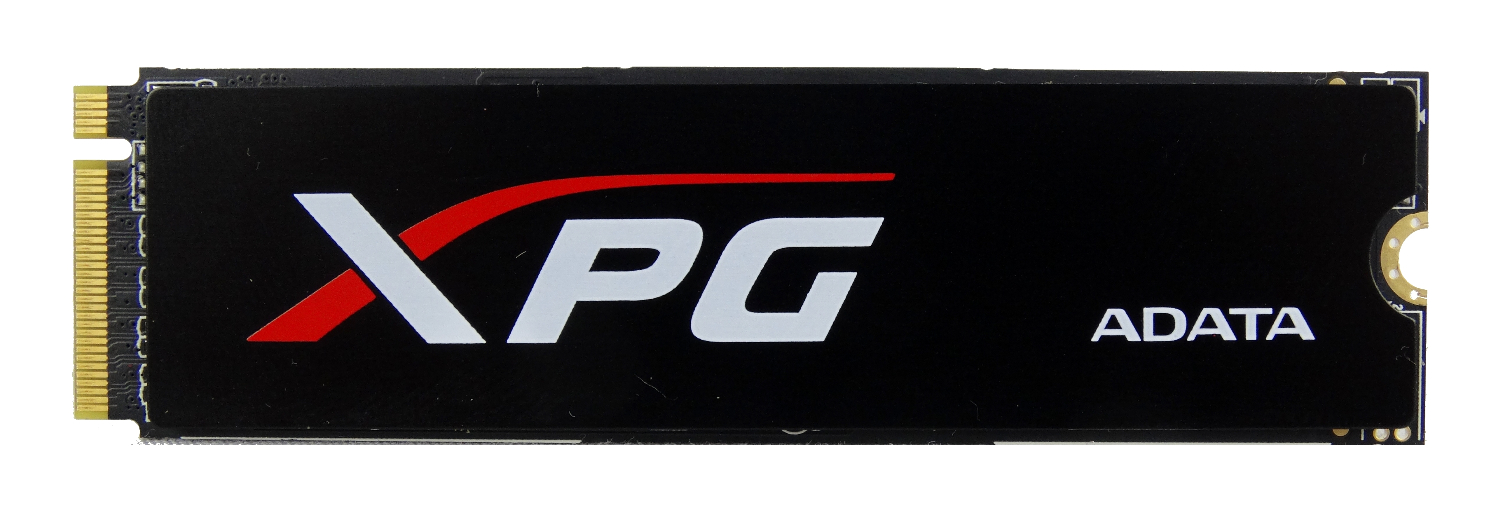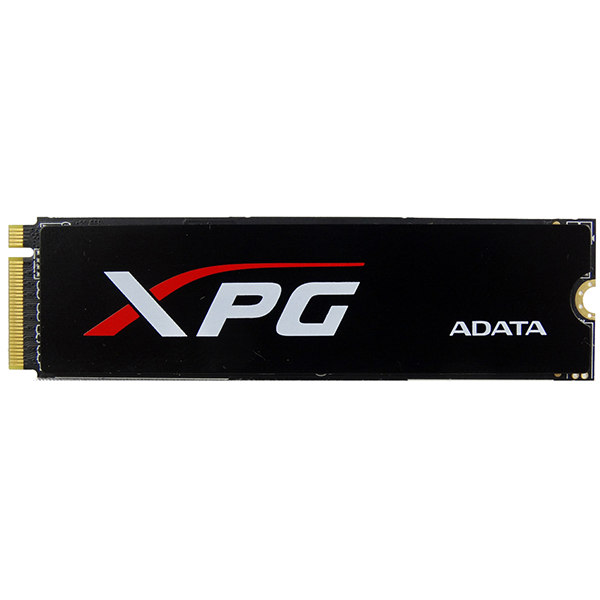Adata XPG SX8200 SSD Review: Great Performance Meets Stellar Pricing
Why you can trust Tom's Hardware
Conclusion
The Adata XPG SX8200 is the best implementation of the SMI SM2262 controller we've seen yet. The extra over-provisioning raises the bar over the Intel and HP drives. We really like this drive, but we also really like the EX920 from HP as well. This is the type of competition that heats up cold wars. We'll see more shots fired if the market keeps heading down this path and shoppers will pick up the pieces at even lower prices.
The SX8200's increased write performance comes at the cost of usable capacity. Intel and HP both gave users the full capacity (e.g., 256GB, 512GB). The XPG SX8200 reserves 7% of its capacity for over-provisioning, but Adata increased the SLC buffer capacity so you will always have a cushion even when the drive is nearly full. You should expect some compromises in this price range, but there are other options if that word isn't in your vocabulary. We spell it "970 PRO."
During heavy workloads, the over-provisioning gives you higher performance than the 760p and EX920. Under heavier workloads you get better performance than the 970 EVO, but less than the 970 Pro.
Adata has a long history of disruptive pricing. The 512GB SX8200 costs $145 less than the 512GB 970 Pro and $45 less than the 500GB 970 EVO. The XPG product line is the company's top-tier "premium" brand, but these products never lose focus on what gamers and many other user types actually look for in a product: above average performance at affordable prices. The company doesn't always hit a home run, but it tries with every opportunity.
Furthermore, the included software suites, better endurance than the Intel 760p, and the long five-year warranty put the SX8200 in a more favorable position. Currently, the SX8200 is the best value in NVMe SSDs.
Adata could do better with delivery, though. At the time of writing we were not able to buy the 1TB SX8200, and even though it was on full display at CES in January, the company hasn't said anything about the 2TB option. We expect the 1TB drive to ship over the summer, but we don't expect to see a 2TB drive until later in the year. 2TB NVMe SSDs should be the centerpiece of every company's Computex display case, so we'll learn more soon. Around the same time, we should see more products with this controller and flash combination. If Adata doesn't deliver a 2TB model, some other company will.
Capacities Rated
MORE: Best SSDs
Get Tom's Hardware's best news and in-depth reviews, straight to your inbox.
MORE: How We Test HDDs And SSDs
MORE: All SSD Content

Chris Ramseyer was a senior contributing editor for Tom's Hardware. He tested and reviewed consumer storage.
-
dudmont Hurray for us! Does the Adata software include a custom driver? If not, has the stock Windows driver been improved? I seem to recall(this is old, I know) that intel and samsung's custom drivers(960 not 970) added a bit to performance and where is the industry, in general, on this topic?Reply -
davidgirgis 240GB Verdict/Score Box is on Page 2: 512GB Performance Testing.Reply
480GB Verdict/Score Box is on Page 3: 256GB Performance Testing.
It should be the other way around. -
richardvday Why are you calling it an SSD instead of NVME ?Reply
Some of us can not use NVME drives yet and need an actual SSD still. -
nukemaster Reply
because it is an SSD.20992560 said:Why are you calling it an SSD instead of NVME ?
Some of us can not use NVME drives yet and need an actual SSD still.
NVME vs SATA are interfaces(standards).
kind of like how IDE was replaced with SATA years back. For the time, they still have quite a few SATA SSDs to choose from. -
mdd1963 "Some of us can not use NVME drives yet..." Then buy one of the standard 2.5" SATA SSD models :)Reply -
mikewinddale "SSD" means "solid-state disk," meaning it uses flash memory instead of spinning mechanical disks.Reply
"NVMe" is a logical interface, meaning it is a communication standard. (Personally, I'd call it a protocol.) That means it is not a physical standard, but rather, it dictates the terms of data being communicated.
"AHCI" is also a logical interface. It is what NVMe replaces. NVMe can be implemented on PCIe, while AHCI can be implemented on both PCIe and SATA.
SATA and PCIe are both bus interfaces. So that means they dictate physical connections and electrical standards. Again, the SATA bus will be paired with the AHCI logical interface, while the PCIe bus can be paired with either the AHCI or NVMe logical interfaces.
So any SSD can come in 3 types:
(1) SATA with AHCI
(2) PCIe with AHCI
(3) PCIe with NVMe
#2 was short-lived. A few PCIe drives were released before NVMe was released. Hence PCIe with AHCI. But now virtually all SSDs are either #1 or #3. -
mapesdhs "This is a nice feature that allows you to install the drive without the hassle of reinstalling Windows and all your software. "Reply
Or just use something like Macrium Reflect Free, works fine. -
AgentLozen Replyadata-xpg-sx8200-article said:The lower random read performance takes its toll on application workloads. The SX8200 trails several of the other products during some of the lighter workloads, but it performs better during the heavier workloads.
This is the paragraph describing the real world software performance. The author includes a bunch of juicy details about the xpg 8200 trailing or leading other SSDs in performance. The differences between SSDs here are exaggerated though. If you study the charts, you'll see that every SSD listed performs exactly the SAME.
The truth about real world performance is that you're better off using an SSD than you are a mechanical hard drive. There's nothing else to analyse. -
Brian_R170 My worry is reliability. AData products always seem to have great prices, but I have had such bad luck with their products (memory, SSD, USB Flash) failing over the years that I won't even consider them any more.Reply -
BaRoMeTrIc Reply20993496 said:My worry is reliability. AData products always seem to have great prices, but I have had such bad luck with their products (memory, SSD, USB Flash) failing over the years that I won't even consider them any more.
Its a matter of luck more than anything. Ive had the same adata ssd in my plex server for 3 years now, and we're talking HEAVY caching, probably close to 2,000 transcodes and constant updates or previews and thumbnails.But ive never had an issue with it. My corsair nuetron XTI drive that i paid big bucks for failed after 6 months (phison controller) MydigitalSSD BPX nvme failed after 3 months (phison controller) both of those drives were rather expensive, compared to my adata, and were under far less strenuous workloads. It all just boils down to luck of the silicon. That being said i will never in a million years buy another product with a phison controller.

